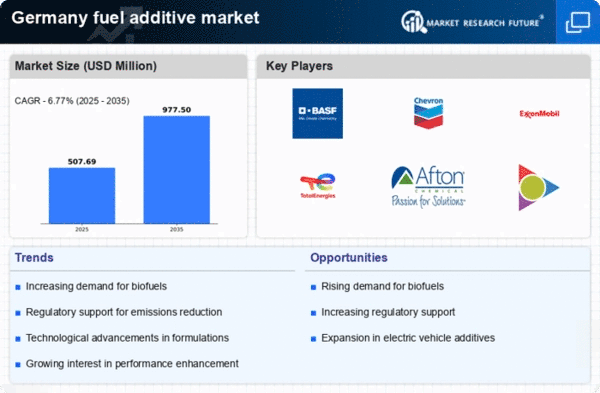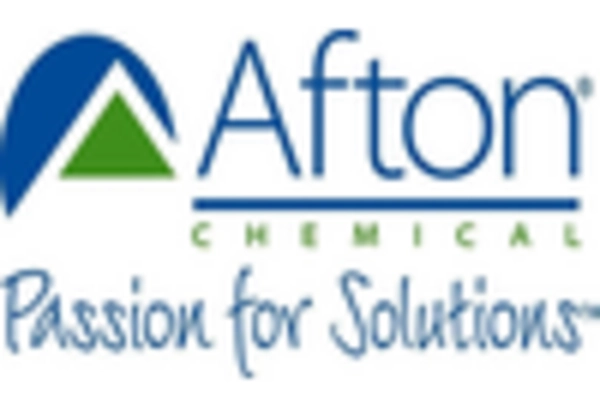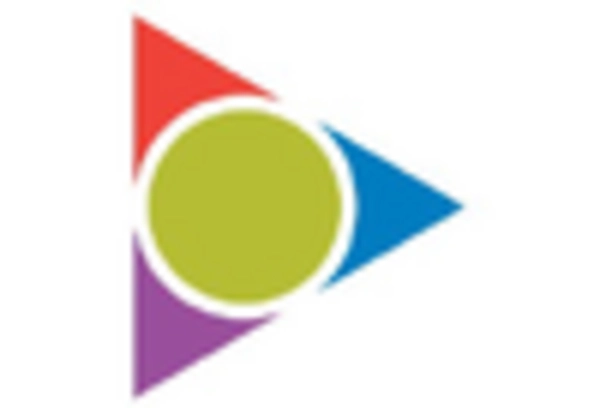The fuel additive market in Germany is characterized by a competitive landscape that is increasingly shaped by innovation, sustainability, and strategic partnerships. Key players such as BASF (DE), Chevron (US), and TotalEnergies (FR) are actively pursuing strategies that emphasize technological advancements and environmental responsibility. BASF (DE), for instance, has focused on developing bio-based additives that align with the growing demand for sustainable solutions, while Chevron (US) has been enhancing its product portfolio through strategic acquisitions aimed at expanding its market reach. TotalEnergies (FR) appears to be investing heavily in digital transformation initiatives, which may enhance operational efficiency and customer engagement, thereby influencing the competitive dynamics of the market.The business tactics employed by these companies reflect a concerted effort to optimize supply chains and localize manufacturing processes. The market structure is moderately fragmented, with several players vying for market share, yet the collective influence of major companies is significant. This competitive environment encourages innovation and responsiveness to market demands, as companies strive to differentiate themselves through unique product offerings and enhanced service capabilities.
In October BASF (DE) announced the launch of a new line of fuel additives designed to improve engine efficiency and reduce emissions. This strategic move not only reinforces BASF's commitment to sustainability but also positions the company as a leader in the development of environmentally friendly solutions. The introduction of these additives is likely to resonate well with consumers increasingly concerned about environmental impact, thereby enhancing BASF's competitive edge.
In September Chevron (US) completed the acquisition of a smaller additive manufacturer, which is expected to bolster its capabilities in producing high-performance fuel additives. This acquisition may allow Chevron to leverage synergies in research and development, potentially accelerating the introduction of innovative products to the market. Such strategic actions indicate Chevron's intent to strengthen its market position and respond effectively to evolving consumer preferences.
In August TotalEnergies (FR) launched a digital platform aimed at optimizing fuel additive distribution and enhancing customer interaction. This initiative reflects a broader trend towards digitalization within the industry, suggesting that TotalEnergies is keen on utilizing technology to streamline operations and improve customer service. The platform may serve as a competitive differentiator, enabling the company to respond more swiftly to market changes and customer needs.
As of November the fuel additive market is witnessing trends that emphasize digitalization, sustainability, and the integration of artificial intelligence. Strategic alliances among key players are increasingly shaping the competitive landscape, fostering innovation and collaboration. The shift from price-based competition to a focus on technological advancement and supply chain reliability is evident, suggesting that companies will need to prioritize innovation and sustainability to maintain a competitive edge in the evolving market.
















